13. 그래프-다익스트라의 최단 경로
다익스트라의 최단 경로
- Dijkstra's Shortest Path Algorithm은 프림 알고리즘과 흡사
- 각 간선에 대한 정보를 우선순위 큐에 담아 처리
- 음의 간선이 없을 때 정상 동작하며 현실에서는 음의 간선이 없어 적합한 알고리즘
다익스트라 과정
- 그래프의 시작점을 선택하여 트리 T에 포함
- T에 포함된 노드와 포함되지 않은 노드 사이의 간선 중 '이동 거리'가 가장 작은 간선 탐색
- 해당 간선에 연결된 T에 포함되지 않은 노드를 트리 T에 포함
- 모든 노드가 포함될 때까지 반복
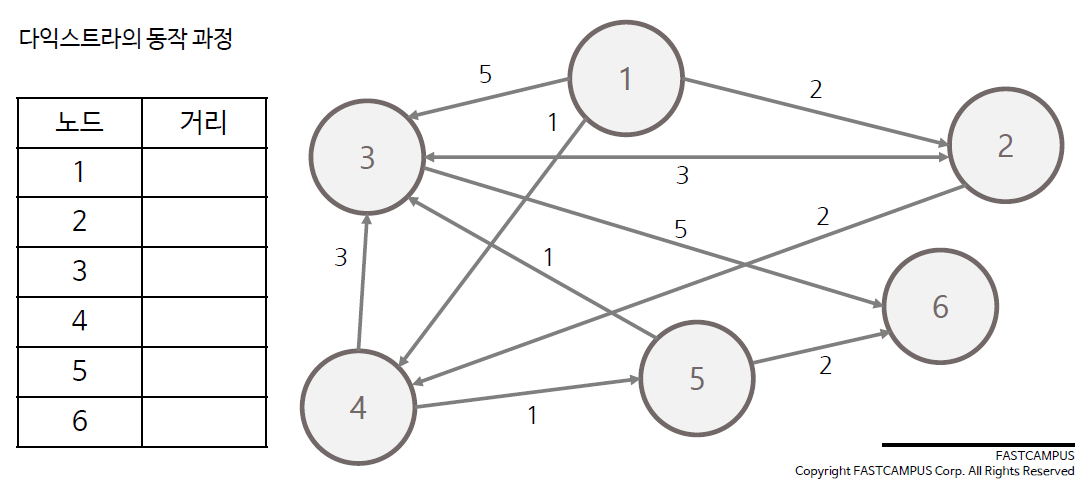
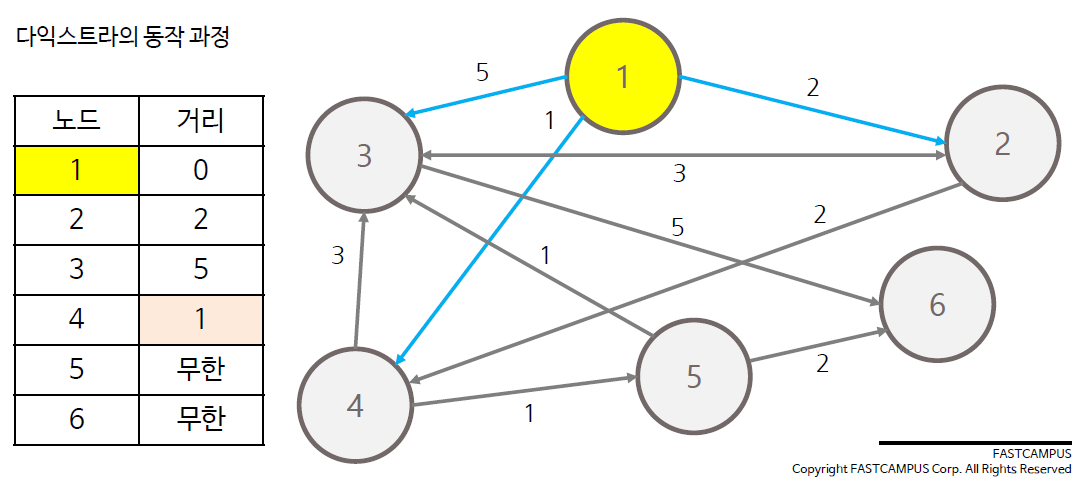
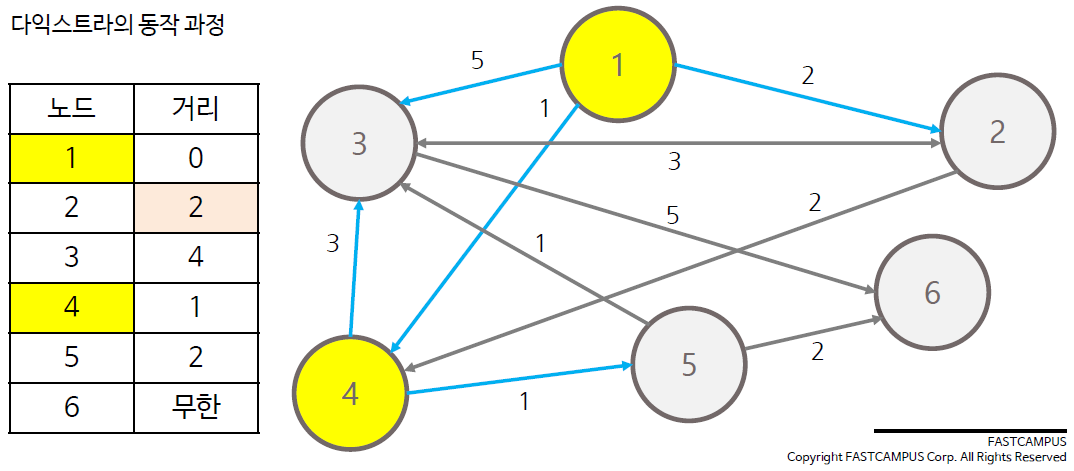
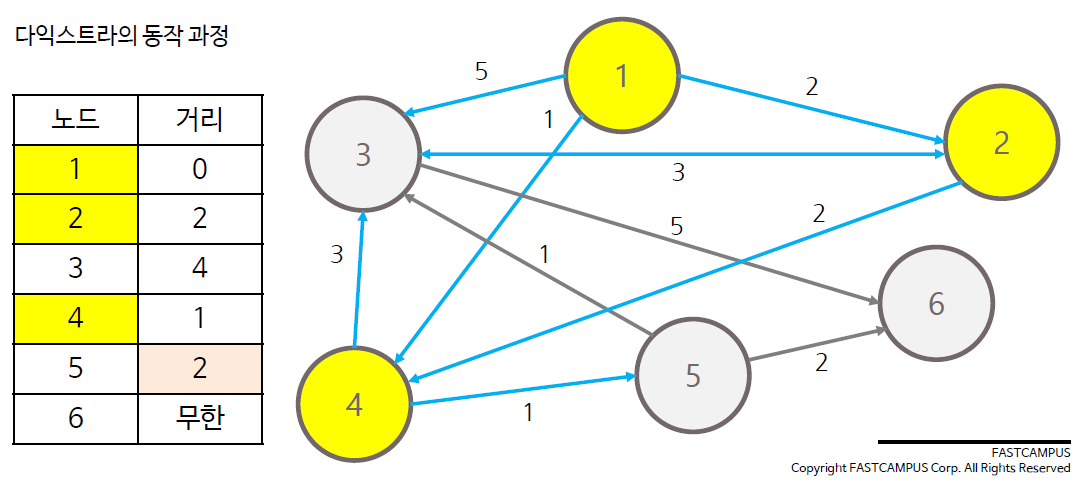
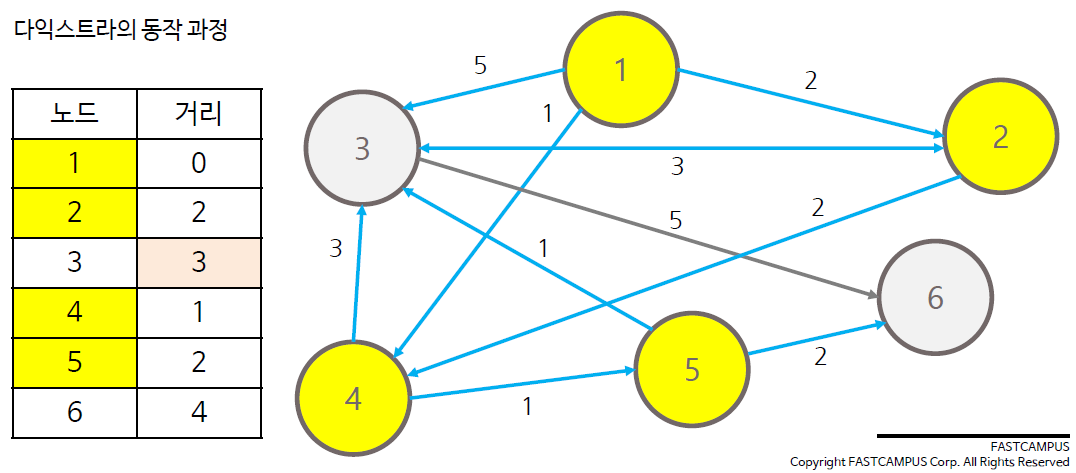
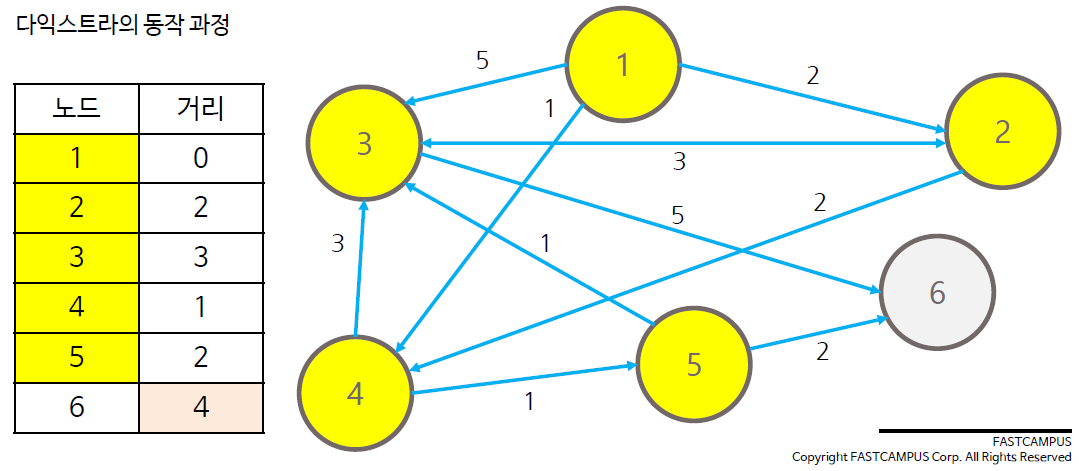
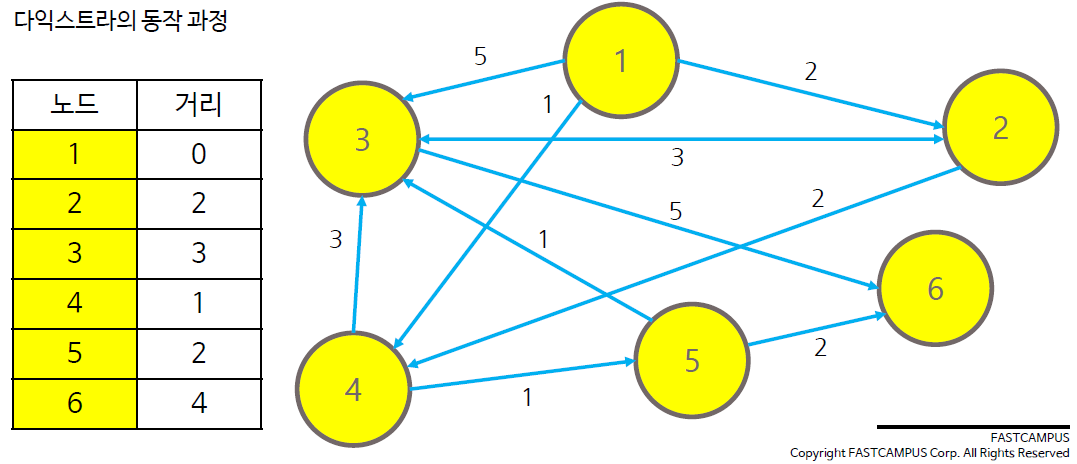
다익스트라 구현
#define _CRT_SECURE_NO_WARNINGS
#include <stdio.h>
#include <stdlib.h>
#include <limits.h>
#define NODE_MAX 20001
#define EDGE_MAX 600001
typedef struct {
int cost;
int node;
} Edge;
void swap(Edge* a, Edge* b) {
Edge temp;
temp.cost = a->cost;
temp.node = a->node;
a->cost = b->cost;
a->node = b->node;
b->cost = temp.cost;
b->node = temp.node;
}
typedef struct {
Edge* heap[EDGE_MAX];
int count;
} priorityQueue;
void push(priorityQueue* pq, Edge* edge) {
if (pq->count >= EDGE_MAX) return;
pq->heap[pq->count] = edge;
int now = pq->count;
int parent = (pq->count - 1) / 2;
while (now > 0 && pq->heap[now]->cost < pq->heap[parent]->cost) {
swap(pq->heap[now], pq->heap[parent]);
now = parent;
parent = (parent - 1) / 2;
}
pq->count++;
}
Edge* pop(priorityQueue* pq) {
if (pq->count <= 0)return NULL;
Edge* res = pq->heap[0];
pq->count--;
pq->heap[0] = pq->heap[pq->count];
int now = 0, leftChild = 1, rightChild = 2;
int target = now;
while (leftChild < pq->count) {
if (pq->heap[target]->cost > pq->heap[leftChild]->cost)target = leftChild;
if (pq->heap[target]->cost > pq->heap[rightChild]->cost&& rightChild < pq->count) target = rightChild;
if (target == now) break;
else {
swap(pq->heap[now], pq->heap[target]);
now = target;
leftChild = now * 2 + 1;
rightChild = now * 2 + 2;
}
}
return res;
}
typedef struct Node {
Edge* data;
struct Node* next;
} Node;
Node** adj;
int ans[NODE_MAX];
void addNode(Node** target, int index, Edge* edge) {
if (target[index] == NULL) {
target[index] = (Node*)malloc(sizeof(Node));
target[index]->data = edge;
target[index]->next = NULL;
}
else {
Node* node = (Node*)malloc(sizeof(Node));
node->data = edge;
node->next = target[index];
target[index] = node;
}
}
int main(void) {
int n, m, k;
scanf("%d %d %d", &n, &m, &k);
adj = (Node**)malloc(sizeof(Node*) * (n + 1));
for (int i = 1;i <= n;i++) {
adj[i] = NULL;
ans[i] = INT_MAX;
}
priorityQueue* pq;
pq = (priorityQueue*)malloc(sizeof(priorityQueue));
pq->count = 0;
for (int i = 0;i < m;i++) {
int a, b, c;
scanf("%d %d %d", &a, &b, &c);
Edge* edge = (Edge*)malloc(sizeof(Edge));
edge->node = b;
edge->cost = c;
addNode(adj, a, edge);
}
ans[k] = 0;
Edge* start = (Edge*)malloc(sizeof(Edge));
start->cost = 0;
start->node = k;
push(pq, start);
while (1) {
Edge* now = pop(pq);
if (now == NULL) break;
int curNode = now->node;
int curCost = now->cost;
if (ans[curNode] < curCost) continue;
Node* cur = adj[curNode];
while (cur != NULL) {
Edge* temp = cur->data;
temp->cost += curCost;
if (temp->cost < ans[temp->node]) {
ans[temp->node] = temp->cost;
push(pq, temp);
}
cur = cur->next;
}
}
for (int i = 1; i <= n;i++) {
if (ans[i] == INT_MAX) printf("INF\n");
else printf("%d\n", ans[i]);
}
system("pause");
return 0;
}







